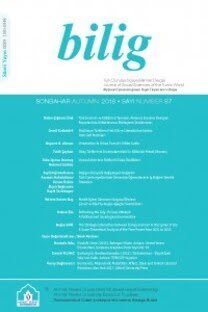15 Temmuz Başarısız Darbe Girişiminin Ardından Türkiye – AB İlişkileri
Türkiye 15 Temmuz 2016 gecesi demokrasisini hedef almış çok önemli bir tehdidi bertaraf etti. O gece Türk halkı sokaklara çıkarak canı pahasına demokrasisini darbecilere karşı korudu. Darbe girişimi sonrası toplanan deliller darbe girişiminin Fethullahçı Terör Örgütü FETÖ tarafından planlanarak hayata geçirildiğini gösteriyor. Bu çalışma, 15 Temmuz sonrası dönemde Türkiye’deki siyasi ortamı, artan Batı karşıtlığı ve Avrupa şüpheciliğinin nedenlerini ve 15 Temmuz başarısız darbe girişiminin Türkiye – AB ilişkilerine olası etkilerini incelemeyi hedeflemektedir. Çalışma, AB’nin, işleyen devlet yapısı ve demokrasisinin varlığını sürdürme çabasında Türkiye ile dayanışmasını artırmasının ve 15 Temmuz sonrasında FETÖ ile mücadelesinde Türkiye’nin hassasiyetini dikkate almak üzere Türkiye ile diyaloğa girmesinin gerekliliğini ileri sürmektedir. Bu, 15 Temmuz sonrası dönemde Türkiye’de artan Avrupa şüphecilik ile mücadele edilmesi ve AB’nin Türkiye’nin demokratikleşmesinde normatif bir referans noktası olarak kabul görmeye devam etmesi için zaruridir.
Turkey – EU Relations after the Failed July 15 Coup Attempt
Turkey tackled a great threat to its democracy on the night of July 15, 2016. Turkish people defended democracy out on the streets against the putschists. Evidence gathered thus far shows that the coup attempt was planned and executed by the Fethullahist Terrorist Organization FETÖ . This paper aims to look at a Turkish political context and the reasons behind the rise of anti-Westernism and Euroscepticism in the post-July 15 period and b the possible impacts of the failed July 15 coup attempt on Turkey – European Union EU relations. It argues that the EU should foster its solidarity with Turkey in its fight for survival of its functioning state and democracy and enter into a dialogue to pay attention to Turkey’s sensitivities in its fight against FETÖ in postJuly 15 period. This is essential for challenging the rise of Euroscepticism in Turkey and keeping the EU relevant as a normative reference point for Turkey’s democratization.
